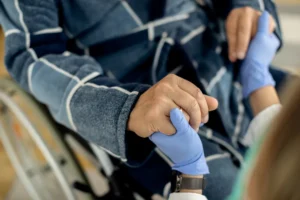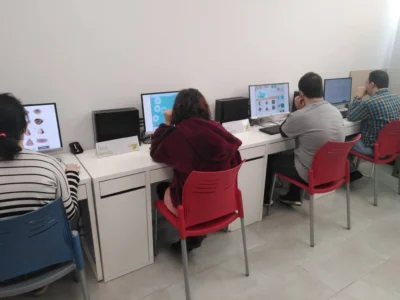On the occasion of Brain Awareness Week 2025, this article explores evidence-based therapeutic strategies to improve the quality of life of patients with multiple sclerosis (MS).
Introduction
The multiple sclerosis (MS) is a chronic neurodegenerative disease that affects the central nervous system, causing a wide variety of symptoms, including cognitive disorders. These deficits can significantly affect patients’ quality of life, hindering their autonomy and impacting their personal and professional relationships.
In this context, cognitive rehabilitation plays a key role in mitigating the effects of the disease on cognitive and emotional functions.
How multiple sclerosis (MS) affects cognitive function
Cognitive disorders are common in patients with multiple sclerosis, with an estimated prevalence of 40-70%. The most affected functions include:
- Memory: Difficulties storing and retrieving information.
- Processing speed: Decreased speed and efficiency in processing and responding to information.
- Attention and concentration: Difficulties maintaining sustained attention.
- Executive functions: Impairments in planning, organization and decision-making.
These deficits can have a significant impact on the patient’s independence and interpersonal relationships, causing frustration and decreased self-esteem.
Therapeutic strategies for cognitive rehabilitation of multiple sclerosis (MS)
1. Cognitive training for multiple sclerosis
Structured cognitive training has been shown to be effective in improving various cognitive functions. Through exercises designed to stimulate memory, attention and processing speed, patients can slow decline and recover lost abilities.
- Computerized exercises: Personalized digital programs for cognitive stimulation.
- Strategy and memory games: Activities that challenge working memory and decision-making.
- Sustained and selective attention tasks: Designed to improve the ability to concentrate.
2. Neuropsychological therapy for multiple sclerosis
Neuropsychological intervention aims to improve cognitive functioning through techniques adapted to each patient. This therapy focuses on retraining affected skills and compensating for deficits using alternative strategies.
- Use of mnemonic techniques to reinforce memory.
- Metacognitive strategies to improve organization and planning.
- Cognitive behavioral therapy to manage the anxiety and frustration associated with cognitive deficits.
3. Use of technologies in cognitive rehabilitation for multiple sclerosis
Digital tools have revolutionized cognitive rehabilitation, offering interactive and customizable solutions. Platforms such as NeuronUP allow professionals to design intervention programs specific to each patient.
- Virtual reality for interactive simulations of daily life.
- Brain training apps to reinforce cognitive skills.
- Tele-rehabilitation platforms to provide remote therapies.
4. Intervention in daily life for multiple sclerosis
Applying compensatory strategies in the patient’s everyday life is essential to improve their autonomy and quality of life.
- Use of planners and reminders to improve time management.
- Establishing structured routines to minimize cognitive load.
- Task breakdown techniques to facilitate the execution of complex activities.
Importance of cognitive rehabilitation in personal relationships
Multiple sclerosis not only affects cognitive function, but also interpersonal relationships. Changes in memory, attention and executive functions can lead to misunderstandings, communication difficulties and social isolation. Neuropsychological rehabilitation can help patients to:
- Improve communication with family and friends.
- Reduce the emotional impact of cognitive deficits.
- Reinforce strategies for emotional regulation and conflict resolution.
Conclusion
Cognitive rehabilitation is a key tool in the comprehensive treatment of multiple sclerosis. Through evidence-based therapeutic strategies, professionals can contribute significantly to improving patients’ quality of life, helping them maintain their autonomy and strengthen their personal relationships.
If you enjoyed this blog post about the cognitive rehabilitation in patients with multiple sclerosis, you will likely be interested in these NeuronUP articles:
“This article has been translated. Link to the original article in Spanish:”
Rehabilitación cognitiva en pacientes con esclerosis múltiple: estrategias para mejorar la calidad de vida







Leave a Reply